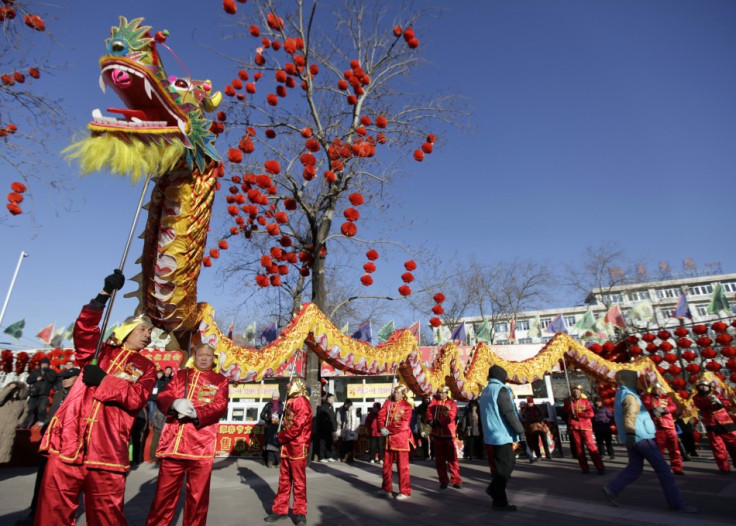Chinese New Year of the Dragon: Top 10 Superstitions

As the Chinese celebrate the new Year of the Dragon - an auspicious year associated with power and wealth - IB Times UK looks at the top 10 superstitions around Chinese New Year.
10 Cleaning yourself, your home or your hair are considered bad luck as they are seen as cleaning out your good luck.
9 The use of knives, scissors or any other sharp objects are strictly prohibited. Chinese folklore indicates that doing so could "cut off fortune". Barbers and hairdressers are avoided.
8 The first person you meet and the first words you hear are supposed to be significant as to what the year ahead of you will bring. It is lucky to come into contact with red birds or swallows or to hear songbirds.
7 The Chinese believe that should you be in debt, you must pay it off by the end of New Year's Day. If you start New Year owing money, you will end it that way too.
6 Wearing red will bring great fortune. Red is thought to be a bright and happy colour which will bring the wearer good fortune for the future. The Chinese believe that the clothing worn at New Year will reflect the tone of the year to come.
5 Topics of conversation are limited, with swearing, references to the year just gone and death all being bad luck. Ghost stories are strictly prohibited too.
4 Chinese New Year could be the perfect excuse to break your diet as eating sweets on this day is rumoured to bring sweeter fortune.
3 Leaving windows open is said to be fortunate and many Chinese homes will keep their windows and doors open all day. Leaving them open is said to "allow good luck to enter".
2 Children are allowed to run free and do as they wish as parents fear discipline will make their offspring cry. If one cries on Chinese New Year, it is believed that they will cry all year.
1 Fireworks are used on New Year's Eve as a way of ushering out the old year out. At midnight, every door and window in the house must be left open to allow the old year to leave.
© Copyright IBTimes 2025. All rights reserved.



















